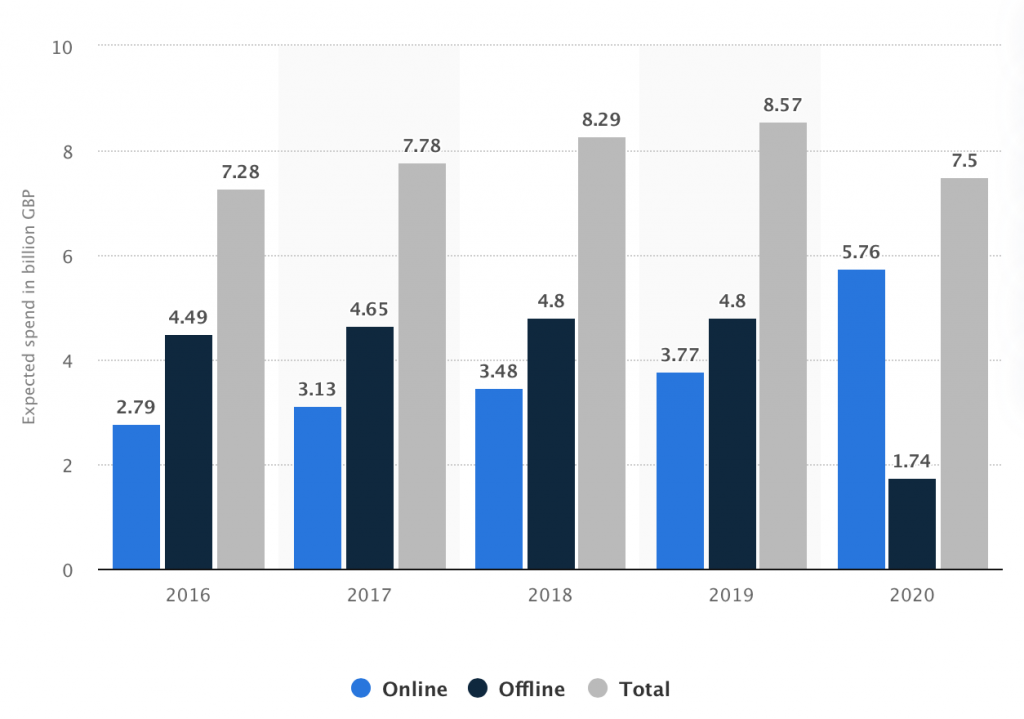Black Friday is not exempt from running a little differently this year, but it is definitely set to be more environmentally damaging than last year.
With Black Friday deals already flooding our doorsteps – quite literally – and our mailboxes, it is impossible not to get tempted to spend some of our hard-earned cash on early Christmas presents.
As countless countries are still under some sort of lockdown, inevitably, consumers will turn to online shopping as in-person purchases are unfeasible.
According to research conducted by Finder, Brits are planning to spend a staggering £6 billion this year compared to the £5.5 billion spent last year.
The whole concept of Black Friday is that people can get their hands on items much cheaper than in normal times, however, the concept fails at the point when people start impulse shopping things they didn’t need in the first place.
Overconsumption during this time of the year takes its toll not only on our bank accounts but on the environment, too. Much of the negative effects, however, will only show in a couple year’s time.
All the electronic devices bought not for their durability, but for their tempting price tags will only last a couple of years (if lucky), and then will have to be disposed of. If not done safely, e-waste can cause dangerous toxins, like lead or mercury, to leach into the soil, as The Basel Action Network stated previously.
Other popular products on sale are fast-fashion garments, which are mainly made out of polyester (otherwise known as common plastic), and will likely end up in landfills after the season ends.
Saying all that, one might ask, is there an eco-friendly way to participate in Black Friday?
Yes and no.
These sales are accelerating the already dangerous worldwide carbon emissions. Impulse buying cannot be sustained with what we already know about climate change, so technically, it’s best to boycott Black Friday entirely. But, and it is a big but, there are ways one can cast their vote for a greener Black Friday.
- Control impulse shopping
It probably sounds too common-sense to mention, but in theory, if everyone only bought what they actually needed, and when they actually needed it, the environmental effects would be significantly less. If you feel like there are plenty of deals in your inbox and most of them make sense to buy, then take a step back. Go out for a walk, or exercise, come back with a fresh mindset, and ask yourself: “Do I really need this?” Most times you will have already forgotten about it by the time you came back.
- If you must buy, support local shops
If there are certain things you needed anyway, and with the Black Friday sales you could get your hands on them for cheap, it is still much better than buying things on impulse. On the other hand, it might be worth your time to check if any local shops are selling the same thing for a similar price. There’s a chance you might be able to pick it up locally, which is better than having it delivered. Plus there’s the benefit of supporting local companies rather than enriching their already rich competitors on the other side of the planet.
See what Etsy offers (when setting the ‘Shop Location’ to your country.)
- Look up if there’s a greener alternative to what you want
Whatever you were planning to buy, in most cases, there is a greener alternative to it. Meaning not only that it is more sustainable, but also that by investing in better quality products, you might save money on not having to purchase another one soon after, whilst creating less waste in the process. This is mainly the issue with fast-fashion brands. If it is clothes you need, it is worth checking out brands that are advertising themselves as eco-conscious, however, beware of greenwashing.
See Armedangels (clothes), Avesu (shoes & bags), Wearth London (toiletries & make-up & homeware)
See our previous article on the fashion industry.
- Support greener companies
Many green companies abstain from doing Black Friday sales in general, like Patagonia or Everlane, with some even shutting down their website for a day in protest against overconsumption. At the same time, there are some who do offer sales, and ideally, supporting them over Amazon, or eBay, is still better for the environment.
- Take the time to read about the company and the product
One of the few benefits of the lockdown has been that people had much more free time on their hands. Social media was flooded with people coming up with creative ways to pass time in the first lockdown, from decorating their homes to doing challenging puzzles. With extra time, people could actually take the time to compare products online and find the best company to support, rather than instantly falling for the hottest deals.
Read this article on what greenwashing is and how to spot it.
Words: Sara Varga | Subbing: Yasmin Sakki


